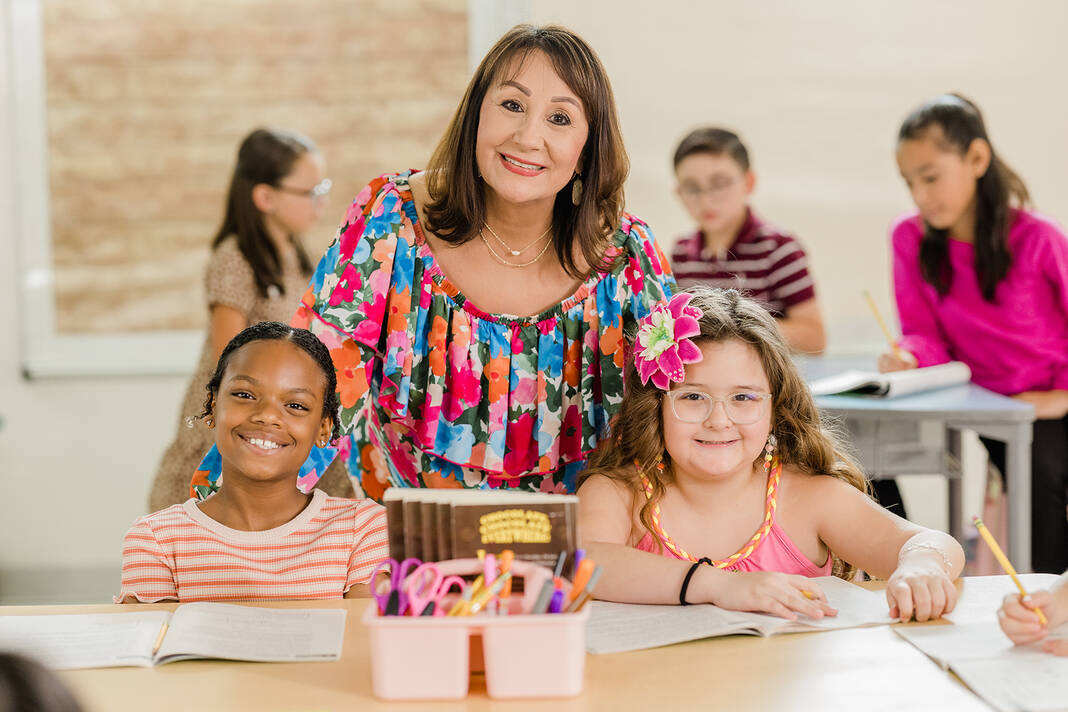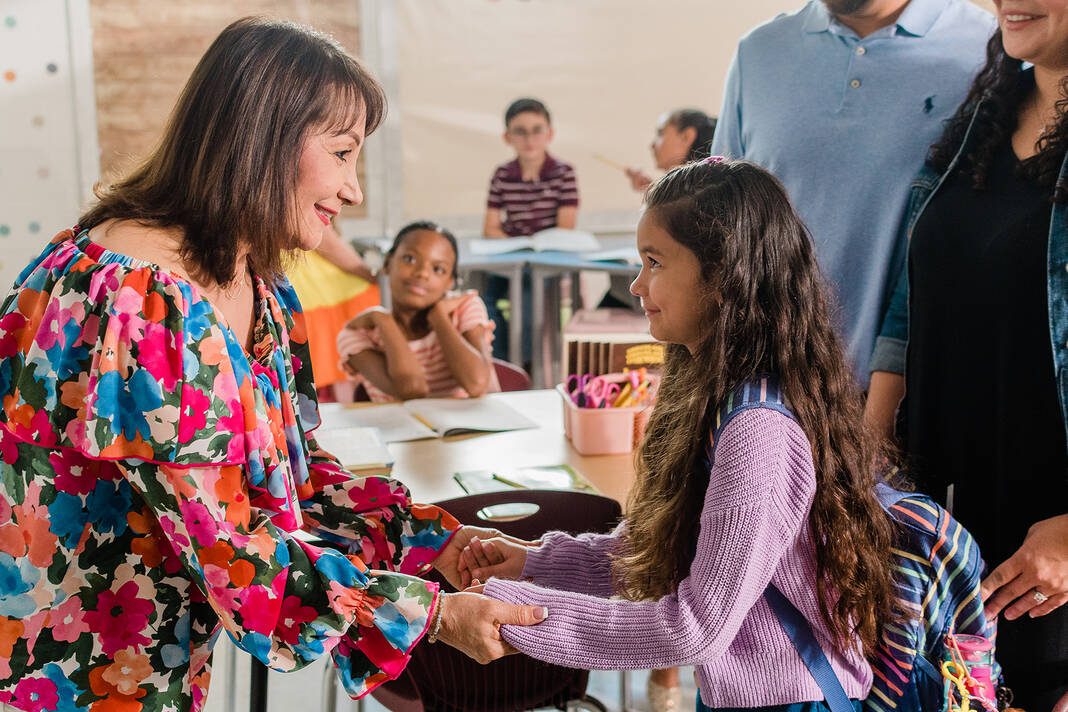|
Only have a minute? Listen instead
Getting your Trinity Audio player ready...
|
HARLINGEN – “Good morning, Erica.”
The three words in this fictional scenario can make a very real difference in a child’s school day, and it’s part of an initiative in the Harlingen school district to build better connections in the classroom.
It’s called “Capturing Kids Hearts”, and its purpose is to change the culture in the classroom, said Sylvia Gamboa, guidance counselor at the Harlingen school district.
“It’s not a program, it’s a process,” Gamboa said. “What that means is they train our staff, including our paraprofessionals as well.”
Capturing Kids Hearts, a nationwide initiative, was launched in Harlingen just last year at the school district’s elementary schools. It has been so successful that the district on Tuesday agreed to implement the training at Harlingen High School.
“That is a huge undertaking,” Gamboa said, “and we are so excited about being able to provide such a great connection process at Harlingen High School. We hope in the future to bring in more campuses.”
The process of Capturing Kids Hearts involves more positive interaction between teacher and student and also between the students themselves. This positivity involves teachers standing at their doors and welcoming each student by name. It means kids taking ownership of their behavior and having the opportunity to redirect themselves.
This positivity stands in stark contrast to the more primal class environments of long ago.
Today, teachers say, “What are you doing?” The child answers and the teachers then ask, “What should you be doing?” and the child answers truthfully, thus taking ownership of his behavior and redirecting. This is the dialogue encouraged by Capture Kids Hearts – and basic human sense.
The revitalization of classroom culture in a more human way is more crucial now than ever, as students and teachers both are still healing from the emotional turmoil of the pandemic. Kids and adults both found themselves isolated in their homes with little or no opportunity to socialize and connect with others.
Of course, safety from the COVID virus was the priority, but returning to class after such a dark time was not easy for some.
“We noticed that when our kids came back, they were having trouble feeling connected,” Gamboa said. “As a counselor, we have always understood that even when students are what people call ‘attention- seeking’ we know that they are needing connections, that that’s where the behavior stems from.”

Teachers and administrators knew early on that re-socialization of kids and adults, rebuilding those connections, and recovering from the emotional strain of the pandemic was vital to success in education.
“We already knew that when students are not feeling connected, they are not going to be engaged,” Gamboa said. “If they are not engaged, they are not going to be learning. We also started to see that our teachers were also needing that connection.”
The school district implemented the two-day training in October through an $880,000 grant from the Valley Baptist Legacy Foundation.
“They provided us with the grant to implement Capturing Kids Hearts at every elementary campus in our district for three years,” Gamboa said. “We have 17 elementary campuses. When we launched it this past year, they sent 17 trainers to go to every single school.”
Capturing Kids Hearts is about creating a mind shift in the way teachers relate to each other and to their students. The teachers encourage students to create their own social contract in place of sterile rules so that they take ownership of their own classroom management, said Cynthia Roundtree, who teaches second grade at Long Elementary.
“With Capturing Kids Hearts, you develop a social contract,” Roundtree said. “The way we went to school, we would walk in, and we would have the rules set up at the front of the classroom and the teacher would go over the rules.”
Not so with Capturing Kids Hearts.
“The social contract is basically rules but it’s developed with the children,” Roundtree said. “You take the time to develop the rules, and you don’t ever say, ‘These are the rules.’ We talk about how we like to be treated. ‘How would you like to be treated by others?’”
This new approach does require more time – and more work – than just posting rules. The teacher and the kids brainstorm ideas, write down those ideas, and refine those ideas until everyone agrees. The instructor places this social contract on a chart which all students – and instructors – sign.
“The kids need to take ownership of what needs to take place in the classroom for all of us to belong so that we can have a good environment to learn and enjoy school,” Roundtree said. “The other thing that I think is a beautiful part of Capturing Kids Hearts is that throughout every single day you refer back to that social contract. And we don’t refer back to it just when a child has maybe done something against the social contract. What you really want to do is reinforcement. ‘Hey, I like the way you were respectful in that you did this for someone.’”
This approach has offered real results at Long and the rest of the district’s elementary schools.
“I think I’ve seen the big picture here with the children,” said Bobbie Hushen, principal at Long. “They know that we are trying to build a relationship with them, but we’re also trying to ensure that how they treat each other and how we treat them, is all based on trust. That’s the biggest piece of Capturing Kids Hearts. Building that relationship and trust.”
Perhaps a foundation of trust and respect can rebuild the structures damaged by the more shadowy natures of life.




